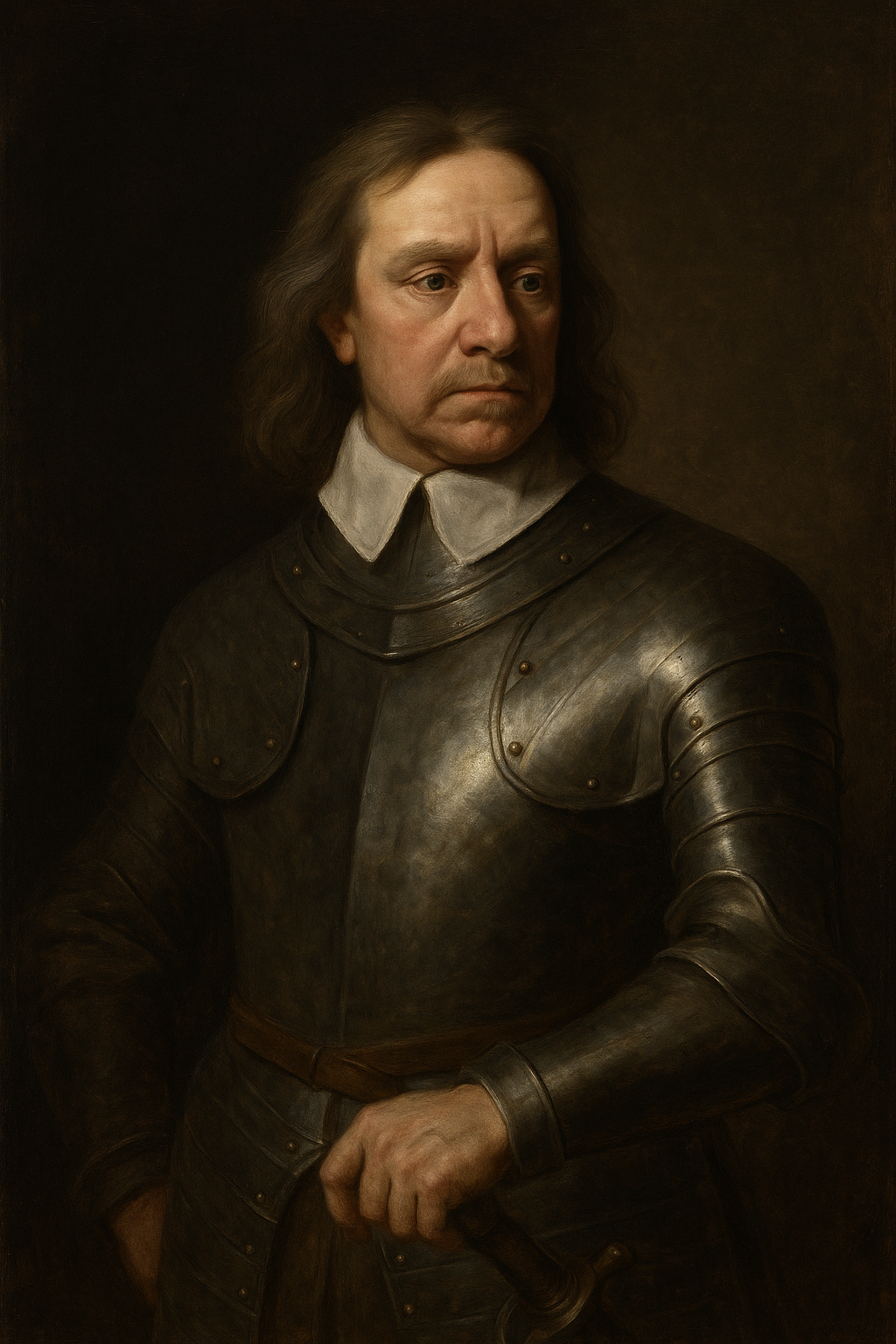
By Jenny Holly Hansen | WBN News | May 4, 2025
Oliver Cromwell (1599–1658) stands as one of the most complex and controversial figures in British history. A devout Puritan, a skilled military commander, and a transformative political leader, Cromwell played a decisive role in the English Civil War and the subsequent creation of the English Commonwealth. As Lord Protector of England, Scotland, and Ireland, he ruled during a rare republican period in English history, leaving a legacy marked by both reform and repression.
Early Life and Rise to Prominence
Born on April 25, 1599, in Huntingdon, Cambridgeshire, Cromwell was raised in a minor gentry family and educated at Cambridge. Though he lived much of his early adult life in relative obscurity, his strong Puritan faith and passionate opposition to royal absolutism would shape his path forward.
Cromwell entered Parliament in the 1620s, but it wasn’t until the outbreak of the English Civil War in 1642 that he rose to prominence. As a commander in the Parliamentarian army, he quickly earned a reputation for discipline, military innovation, and battlefield success. His leadership of the “New Model Army” was instrumental in defeating the Royalist forces of King Charles I.
Regicide and the Commonwealth
After years of conflict, Cromwell supported the radical decision to put King Charles I on trial for treason. The king was executed in 1649—a shocking moment in European history that abolished the monarchy and established the English Commonwealth.
With the monarchy gone, Cromwell helped govern a republic in the absence of a king. Initially, he worked within a council of state and sought to maintain parliamentary rule. However, tensions between Cromwell and various factions in Parliament eventually led him to dissolve the Rump Parliament by force in 1653.
Lord Protector: A Republic in Name Only?
In 1653, Cromwell accepted the title of Lord Protector, essentially ruling as a monarch in all but name. His rule combined strict moral governance with centralized authority. He enforced Puritan ideals—banning theater, alcohol, and many forms of public entertainment—while also promoting religious tolerance for many Protestant sects (but not for Catholics or Anglicans).
Cromwell was also active abroad, overseeing military campaigns in Ireland and Scotland. His brutal conquest of Ireland, particularly the sieges of Drogheda and Wexford, remains one of the most hotly debated aspects of his legacy.
Death and Legacy
Oliver Cromwell died on September 3, 1658, after a sudden illness. His son, Richard Cromwell, briefly succeeded him, but lacked the authority or support to hold power. Within two years, the monarchy was restored under King Charles II in 1660.
Though the Commonwealth ended, Cromwell’s legacy endured. He had challenged the divine right of kings, redefined the power of Parliament and the army, and left an indelible mark on the constitutional evolution of Britain.
To some, Cromwell was a visionary reformer and champion of liberty. To others, he was a regicidal dictator whose rule brought repression and war. Either way, his impact on English history is undeniable—his life serving as a dramatic chapter in the struggle between monarchy and democracy.
Let’s Keep Talking:
Jenny is a business insurance broker with Waypoint Insurance.
She is also a business development consultant with Impresario Partners, helping Canadian Business expand overseas.
She can be reached at 604-317-6755 or jholly-hansen@wbnn.news. Connect with Jenny on LinkedIn at https://www.linkedin.com/in/jenny-holly-hansen-365b691b/. Connect with Jenny at BlueSky: https://bsky.app/profile/jennyhollyhansen.bsky.social
Let’s Meet Up:
Jenny Holly Hansen is a cohost with Chris Sturges of the Langley Impact Networking Group. You are welcome to join us on Thursday’s from 4pm to 6pm at: Sidebar Bar and Grill: 100b - 20018 83A Avenue, Langley, BC V2Y 3R4
TAGS: #Jenny Holly Hansen #Oliver Cromwell #Puritan Faith #English Civil War of 1642 #Lord Protector



